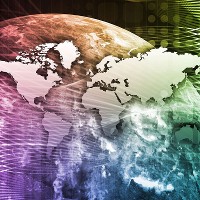Sustainable Futures
Addressing critical knowledge gaps
An integrated understanding of sustainable development: There is an urgent need for a truly integrated, comprehensive quantitative understanding of sustainable development pathways, accounting for the inter-linkages between the economy, technology, environment, climate, human development and planetary boundaries. For example, when the leading organizations issue long-term projections for the world economy, these do not tend to account for the impact of climate change or different demographic developments. Similarly, models for climate change mitigation are poorly integrated with models for biodiversity or those for the use of land and water resources. Moreover, we lack a proper understanding of the interrelations between policies aimed at productivity growth, material welfare, energy access, and environmental sustainability.
The need for regional perspectives: A large number of sectoral and integrated global models exist, but they often lack appropriate downscaling to the major regions. Where such downscaling exists, the ‘sustainable development pathways’ are rarely calibrated in such a way that every region can experience a sustainable future. Yet, the feasibility of sustainable development pathways in every region is a central political and ethical requirement for global sustainable development pathways. To this end TWI2050 will downscale and interpret its integrated analysis to provide a better understanding of how every major world region can achieve sustainable development. Exemplary country studies will complement the regional perspective.
A detailed understanding of the opportunities and needs for technological change: Achieving sustainable development requires decoupling of environmental resource use and pollution from economic activity and social progress on a historically unprecedented scale and depth, for example in the energy sector. Such decoupling can only be achieved through massive advances in technologies and their widespread adoption. Similarly, modern ICT, local and traditional knowledge, biotechnology, and other technologies can help transform the way countries tackle major human development challenge and enhance local and Earth resilience. TWI2050 will seek to develop a robust understanding of how modern technologies and associated policy frameworks can support and underpin sustainable development pathways.
Sustainable Development Pathways
One of the most pressing challenges currently facing the global community is how to realize the benefits of future global social and economic development within a safe and just operating space of a stable planet. There is still significant inequality between and within societies and overwhelming evidence of rising global risks due to ever increasing human pressures on the planet. Ensuring future sustainable development will require socio-economic development within sustainability limits and budgets for improving human well-being and preserving natural resources and environmental processes that regulate ecosystem and planetary resilience (often referred to as planetary boundaries).
A sustainable development pathway must also take account of the critical drivers of human capacity, demographic changes, opportunities for technological innovation and diffusion, sound institutions and transformative governance capabilities, sustainable diets, and other critical socio-economic developments.


